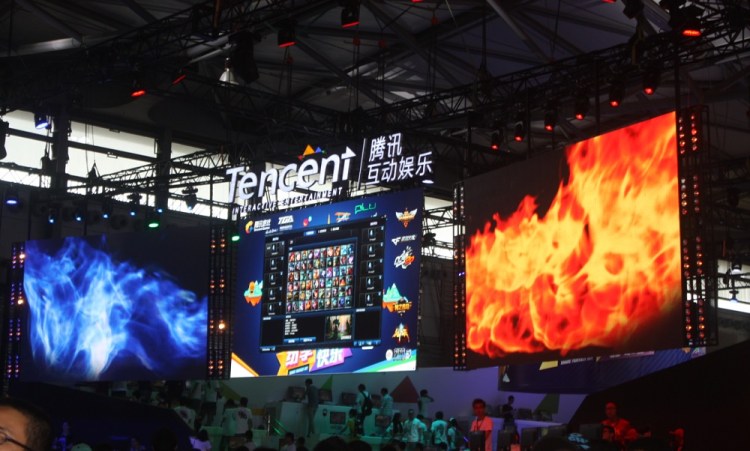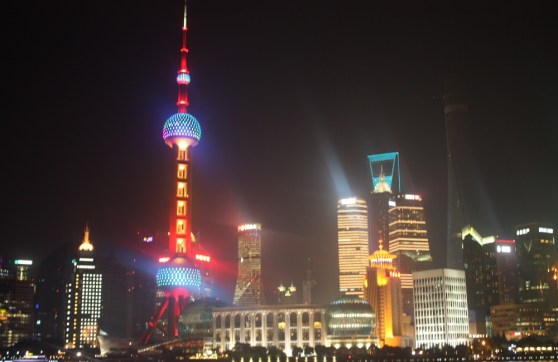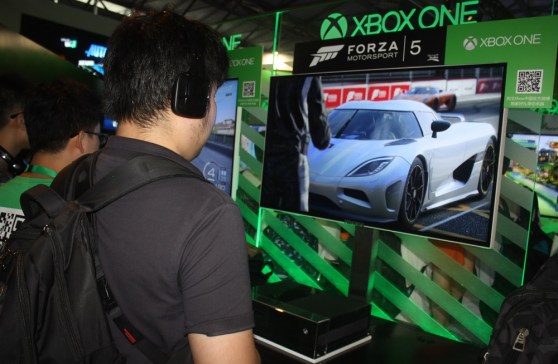GamesBeat: Do you see Chinese game developers in mobile doing the quality of work that other global game developers are bringing? Are they showing the kind of talent that can compete with Europe and the U.S.?
Wang: They’re catching up very fast. Remember, the gaming industry didn’t exist in China 15 years ago. The most experienced people here have only 15 years’ experience. Compare that to the U.S., where you could go to a place like Epic and find senior people who are much more experienced than that.
Asian developers are good at community. It’s not just about players versus the environment. Asian game companies are good at players versus players, creating more interaction between people. It’s not just about the fun of shooting things, for instance. It’s about the fun of shooting things with your friends.
Another big area is monetization. If you can start with a two- or three-year life cycle for a game, how do you extend that? How do you make more money without too much added expense? That requires a lot of fine tuning. Those are areas where Asian developers have more experience.
Asia is very crowded, though. Sometimes you don’t even have fresh air. Western developers have more space outdoors, a more balanced lifestyle. When it comes to game design, they’re more creative. If companies like Tencent can help those creative people and creative studios to catch up and master free-to-play games, we can build massive, globally popular games. We already see that in League of Legends.
GamesBeat: What do you think of some of the newer developments in the Chinese market? Xbox One is going to launch here. We have Android microconsoles and smart TV games. People are trying a lot of new things.
Wang: Consoles are a good business in China. It seems like it may only be a complementary or niche market. If you look at what happened in Korea, Korea has no restrictions on consoles, but it’s still predominantly a free-to-play PC market. If people access games for the first time on the PC platform, most likely their friends will be on that platform.
Certain people prefer to enjoy the console experience. In absolute numbers, it’ll be a big group, a mature enough market. But in relative percentages, it might not be that significant.
The Android consoles and smart TVs have a tough job. Like in Japan, the average house in China, is very small. You might have a living room, but to fit a TV and a game console in there, it’s kind of a luxury. The TV there is usually shared by the entire family. Someone playing a game takes that over completely.
GamesBeat: When I look at some of the biggest came companies, some of the interesting things they’re doing are transmedia investments. Activision has Skylanders, mixing toys and games. Disney and Nintendo are doing the same. It’s still a little vague, but it sounds like Disney is hiring a lot of transmedia people to build a completely new Star Wars franchise from the ground up, all coordinated with one strategy.
Wang: In China, we’re doing some experimental projects like that. On TV, we’re marketing card games, chess games, and other board games. The market is different in China. Normally, older people, senior people watch TV here. Younger people tend to get their entertainment online, through PC or mobile. They spend less and less time with TV. So more casual games, games that are easier to understand and play, are more appealing to the TV audience. We’ll see how it goes. Right now, in order to achieve sustainable growth, we need to make multiple bets on different fronts. That’s one of them.
GamesBeat: In mobile games, it seems like the inexpensive thing to do is try out new intellectual property. In console games, it costs a lot, though. Something like Watch Dogs from Ubisoft costs a lot of money and took five or six years. In mobile, you can create a new IP, and if it works you can do what Disney did with Where’s My Water. It started as a mobile game, and now it’s a toy and a TV show. They found it worked well with the mobile audience, and so they took it much broader.
Wang: We’ll be doing that more and more. We see ourselves as being in the content business. Gaming is just one kind of content. We’ve also tried some transmedia projects. For the children’s market, we’ve done a series of books based on game content. We’re thinking about the movies. We’re just not sure yet what property to use. But we could do something like spinning off a movie from a game and releasing an expansion pack together with the movie.
People can fulfill their entertainment needs in lots of ways. They can watch a movie, play a game, or read a novel. We already see some games having great success in leveraging their IP elsewhere. We’ll be testing this with a couple of projects.
GamesBeat: Everyone’s welcoming the newfound popularity of indie games on mobile, but they complain about the trouble with discoverability and the cost of acquiring users. Do you think we’re stuck with our current situation? There’s a great benefit from a large variety of games, but it’s very difficult for each of them to get noticed.
Wang: That’s why we have a kind of two-tiered system. Internally we have different platforms. We have WeChat and Mobile QQ. Those are the platforms with the highest quality and maximum coverage. Those are reserved for the pros, for our best content. But we also have an independent platform called MyApp, which is more like Google Play. That’s more open. We’re using it to attract and help smaller indies fine-tune their games.
We also have a Y Combinator type of program in Beijing, Shanghai, and other major cities in China. We’re helping developers understand the major elements of making a good game and how to integrate with our platforms. Variety is very important. Nobody knows who’ll become the next Supercell. It’s better to build engagement with developers early on and provide the support they need. That also helps Tencent by extending our content pipeline as much as possible.
VentureBeat's mission is to be a digital town square for technical decision-makers to gain knowledge about transformative enterprise technology and transact. Learn More



